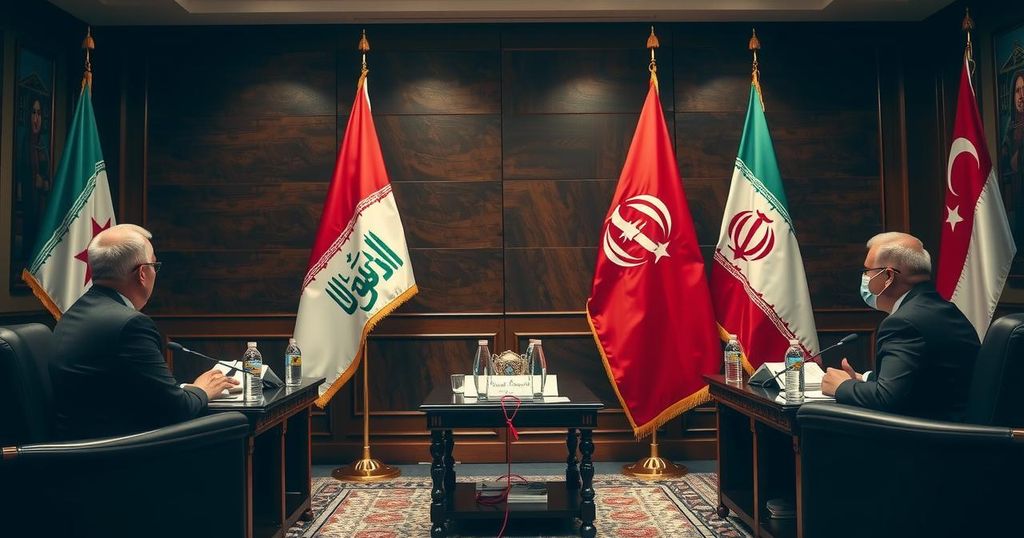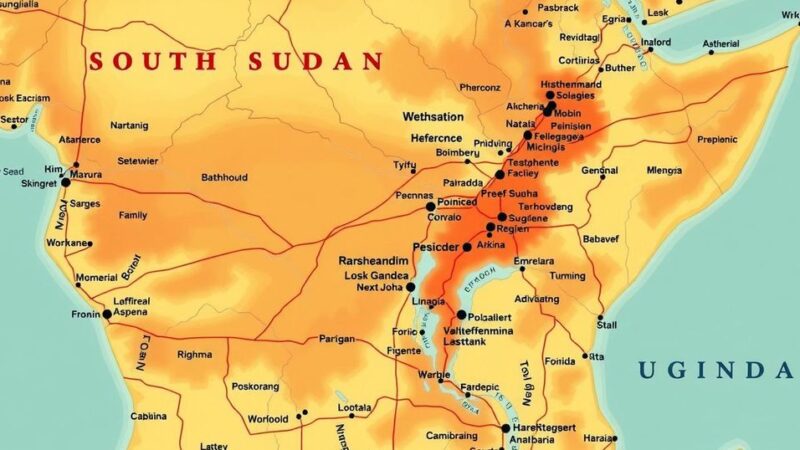The Syrian regime is seeking regional support following the loss of Aleppo, engaging with Iraq, Iran, and the UAE to combat opposition threats and uphold its governance. Assad’s discussions with these nations highlight commitments to Syria’s sovereignty and counterterrorism efforts, amid a broader trend of Arab reconciliation with the regime after years of isolation.
The Syrian regime is actively pursuing regional support to reinforce its position following territorial losses to opposition forces, notably the recent fall of Aleppo. With the regime firmly controlling western Syria, it now faces heightened threats from US-backed groups in the east and Turkish forces in the north. The current situation necessitates collaborations and alliances through outreach to several key nations, including Iraq, Iran, and the UAE, amidst a deteriorating security landscape.
In recent communication efforts, Syrian President Bashar al-Assad engaged with leaders from Iraq and the UAE to discuss developments in Syria and strategize against terrorism. These discussions highlighted Iraq’s commitment to aid Syria in combatting terrorist threats while reaffirming Syria’s sovereignty. Notably, Iraqi Prime Minister Mohammed Shia’ Al Sudani reiterated the Iraqi government’s readiness to support Damascus in its efforts to stabilize the region and uphold its borders.
Following the talks with Iraq, President Assad also conferred with Sheikh Mohammed bin Zayed Al Nahyan of the UAE. During this conversation, President Assad stressed the importance of ongoing stability in Syria while vowing to counteract terrorist influences with help from allies. The UAE leader similarly expressed solidarity with Syria, emphasizing the necessity of collaborative efforts to secure peace and integrity within Syrian territories.
The nature of the Syrian regime’s outreach reflects a broader trend of reconciliation with Gulf states. Over the past few years, connections with Arab nations have evolved, as these countries increasingly discerned the instability stemming from the civil war as a more significant threat than the Assad government itself. This pivot is evident as Egypt took the lead in reintegrating Assad into regional considerations, ultimately prompting a wave of acceptance among neighboring states.
Despite the recent territorial setbacks, the Assad regime’s engagement with key allies such as Iraq and the UAE, alongside Iran and Russia, is a strategic maneuver intended to secure necessary support during these turbulent times. The ramifications of losing Aleppo serve as a stark reminder of the challenges the regime faces, thus necessitating robust partnerships to maintain its governance and territorial claims.
The Syrian Civil War, which began in 2011, has led to significant power shifts within the country, with various factions contending for control. The regime, led by President Bashar al-Assad, has managed to retain authority over western Syria but faces considerable opposition in the north and east. The fall of Aleppo marks a critical moment where the regime’s stability is questioned, prompting Assad to seek alliances to regain strength. Additionally, the geopolitical landscape reflects a growing willingness among Arab states to engage with Assad’s administration, demonstrating a shift in the regional attitude towards the Assad regime after years of isolation.
In conclusion, the Syrian regime’s outreach to regional partners signifies a desperate attempt to garner support amidst increasing threats from opposition forces. The conversations with Iraq and the UAE illustrate strategic alignments, aimed at combating terrorism while reaffirming Syria’s territorial integrity. Despite recent defeats, Assad’s efforts to rekindle relations with key allies reflect a continued aspiration to stabilize the regime within a tumultuous geopolitical landscape.
Original Source: www.jpost.com






